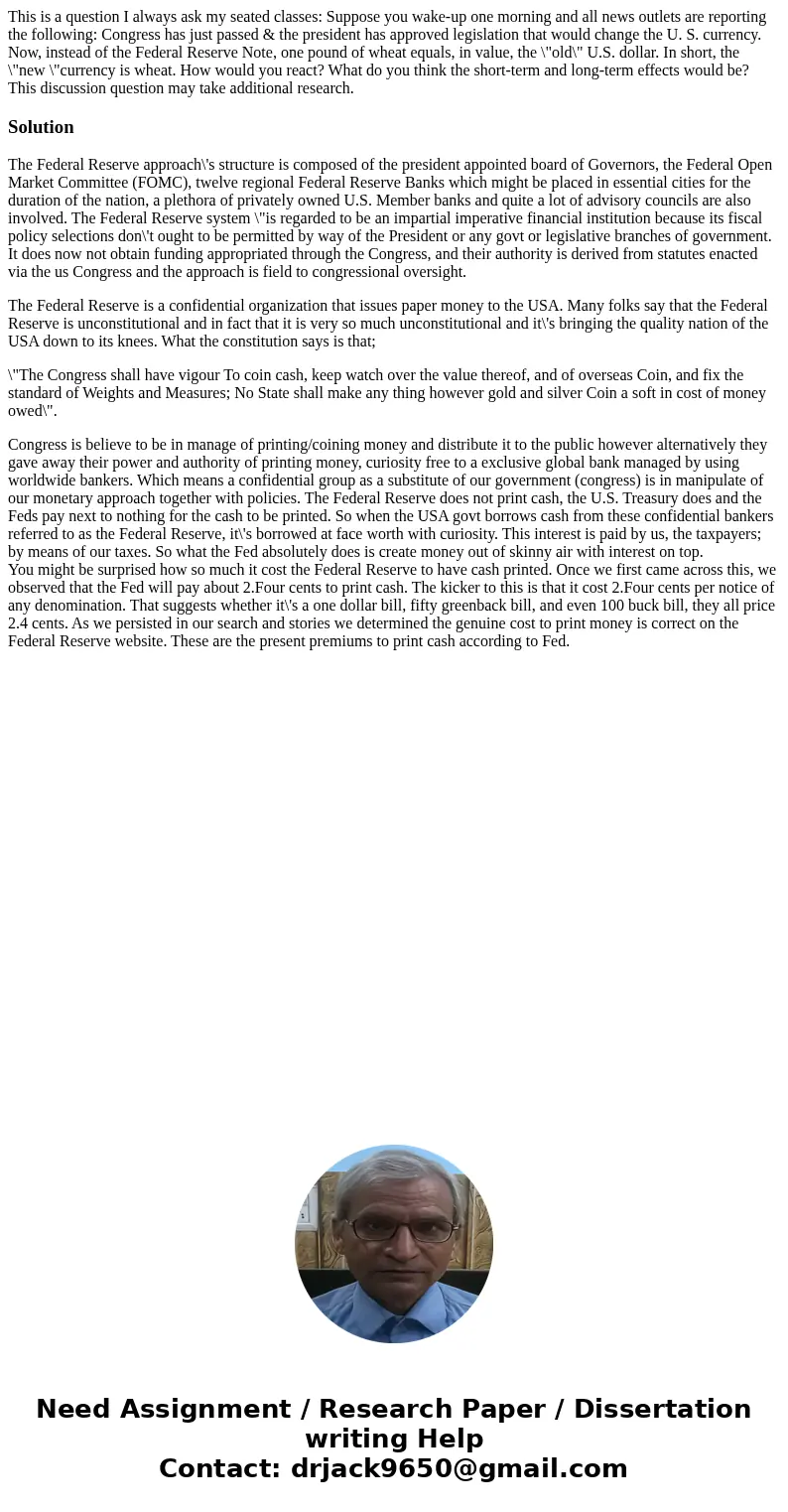This is a question I always ask my seated classes Suppose yo
This is a question I always ask my seated classes: Suppose you wake-up one morning and all news outlets are reporting the following: Congress has just passed & the president has approved legislation that would change the U. S. currency. Now, instead of the Federal Reserve Note, one pound of wheat equals, in value, the \"old\" U.S. dollar. In short, the \"new \"currency is wheat. How would you react? What do you think the short-term and long-term effects would be? This discussion question may take additional research.
Solution
The Federal Reserve approach\'s structure is composed of the president appointed board of Governors, the Federal Open Market Committee (FOMC), twelve regional Federal Reserve Banks which might be placed in essential cities for the duration of the nation, a plethora of privately owned U.S. Member banks and quite a lot of advisory councils are also involved. The Federal Reserve system \"is regarded to be an impartial imperative financial institution because its fiscal policy selections don\'t ought to be permitted by way of the President or any govt or legislative branches of government. It does now not obtain funding appropriated through the Congress, and their authority is derived from statutes enacted via the us Congress and the approach is field to congressional oversight.
The Federal Reserve is a confidential organization that issues paper money to the USA. Many folks say that the Federal Reserve is unconstitutional and in fact that it is very so much unconstitutional and it\'s bringing the quality nation of the USA down to its knees. What the constitution says is that;
\"The Congress shall have vigour To coin cash, keep watch over the value thereof, and of overseas Coin, and fix the standard of Weights and Measures; No State shall make any thing however gold and silver Coin a soft in cost of money owed\".
Congress is believe to be in manage of printing/coining money and distribute it to the public however alternatively they gave away their power and authority of printing money, curiosity free to a exclusive global bank managed by using worldwide bankers. Which means a confidential group as a substitute of our government (congress) is in manipulate of our monetary approach together with policies. The Federal Reserve does not print cash, the U.S. Treasury does and the Feds pay next to nothing for the cash to be printed. So when the USA govt borrows cash from these confidential bankers referred to as the Federal Reserve, it\'s borrowed at face worth with curiosity. This interest is paid by us, the taxpayers; by means of our taxes. So what the Fed absolutely does is create money out of skinny air with interest on top.
You might be surprised how so much it cost the Federal Reserve to have cash printed. Once we first came across this, we observed that the Fed will pay about 2.Four cents to print cash. The kicker to this is that it cost 2.Four cents per notice of any denomination. That suggests whether it\'s a one dollar bill, fifty greenback bill, and even 100 buck bill, they all price 2.4 cents. As we persisted in our search and stories we determined the genuine cost to print money is correct on the Federal Reserve website. These are the present premiums to print cash according to Fed.

 Homework Sourse
Homework Sourse